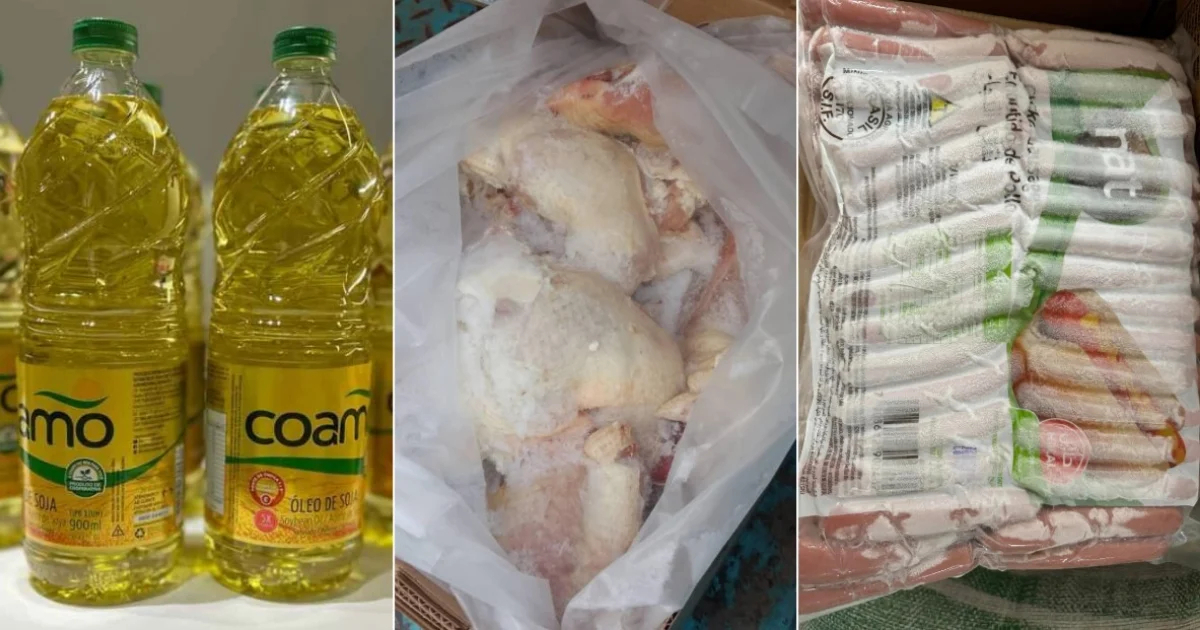The Ministry of Finance and Prices (MFP) in Cuba issued 4,332 fines to private businesses for price violations between July 12 and 13, totaling over 13 million pesos, according to the official newspaper Granma.
As part of the regime's crackdown on the non-state sector, authorities and inspectors from the MFP conducted 11,891 checks to ensure compliance with retail price caps. Vladimir Regueiro Ale, head of the sector, stated that these inspections covered the entire country. "We detected violations at a rate of 41.7%, with 4,954 total violations, and imposed 4,332 fines amounting to over 13 million pesos," he explained.
Enforcement Measures and Penalties
In addition to the fines, 354 forced sales were carried out—187 in Havana—along with 53 temporary suspensions of business licenses and 21 confiscations, mainly targeting illegal operations, as reported by the same media outlet.
It's worth noting that the government announced last Monday the implementation of price caps on six high-demand essential products through a resolution published in the Official Gazette of Cuba.
The Resolution 225/2024 from the Ministry of Finance and Prices sets the maximum retail prices for the following products:
- Chopped chicken: 680 pesos per kilogram.
- Edible oils (except olive oil): 990 pesos per liter.
- Powdered milk: 1,675 pesos per kilogram.
- Pasta: 835 pesos per kilogram.
- Sausages: 1,045 pesos per kilogram.
- Powdered detergent: 630 pesos per kilogram.
This resolution aims to mitigate inflation's impact on consumers. To achieve this, the government eliminated the customs duty on imports of these products and set maximum sales prices, considering acquisition costs, commercial expenses, merchant profits, and sales tax. Additionally, a profit margin of up to 30% over costs and expenses is established, provided it does not exceed the prices defined in the resolution's annex.
One of the fined MiPymes (Micro, Small, and Medium Enterprises) is located in Havana del Este, where its owner was selling oil at 1,200 pesos per liter, while the state-set price is 990 pesos per liter.
"A fine of 8,000 pesos was imposed under Decree 30, Article 7, Section B," the MFP specified in a tweet last Saturday.
In another post, the MFP reported an inspection at a business in the Boyeros municipality, where oil, chicken, and sausages were being sold above the permitted prices.
The Cuban government's battle against merchants who do not comply with price caps has reached the point of asking citizens to report violators by phone. The Ministry of Finance and Prices advocates for a popular control movement and has established communication channels in each territory for people to file reports.
These phone reports would join the "army" of 7,000 inspectors prepared by the MFP to enforce the regulation.
Understanding Cuba's Price Cap Enforcement
To provide more context on Cuba's recent price cap enforcement measures, here are some frequently asked questions and their answers:
What are the maximum prices set by the Cuban government?
The maximum prices are as follows: chopped chicken at 680 pesos per kilogram, edible oils (except olive oil) at 990 pesos per liter, powdered milk at 1,675 pesos per kilogram, pasta at 835 pesos per kilogram, sausages at 1,045 pesos per kilogram, and powdered detergent at 630 pesos per kilogram.
What are the penalties for exceeding these price caps?
Penalties include fines, forced sales, temporary suspensions of business licenses, and confiscations. For example, a fine of 8,000 pesos was imposed on a business selling oil at 1,200 pesos per liter.
How is the Cuban government enforcing these price caps?
The government has deployed 7,000 inspectors to enforce the price caps and is encouraging citizens to report violators by phone through established communication channels in each territory.
What is the goal of implementing these price caps?
The goal is to mitigate the impact of inflation on consumers by setting maximum prices for essential high-demand products.
